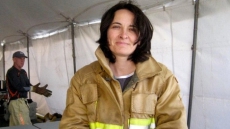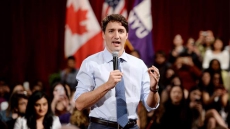A look through the haze to uncover how legal cannabis use will affect the youth of the province
Whether you’re for it or against it, whether we’re ready or not, recreational use of cannabis will be legalized around the country and in the province of British Columbia come July.
It’s a message Vancouver City Councillor Kerry Jang has reiterated to his constituents and the people around the province more often than not these days. “Legalization is coming,” he says, “whether people like it or not. It’s coming, so we better be ready.”
So are we? With policies and plans being announced and consultations and debates happening regularly, the province is working hard to ensure cannabis is introduced in the most responsible way possible. “I think the province is ready,” says Councillor Jang, Vancouver’s lead on the marijuana file. “I think that with the recent announcements of the principles behind how they’re going to actually roll out our legalization has been very wise.”
While the provincial government works on many aspects of the legalization, from distribution to compliance, and public consumption to road safety, one factor in particular is raising concern. Weed won’t be legally available for purchase or use to those under 19 years of age, but how will its legality affect the younger generation?
Mark Haden, professor at the University of British Columbia School of Public and Population, says it completely depends. Marketing and distribution will play a large role in how available, accessible and attractive cannabis use becomes to minors once it’s legal. “Legalization does not equal explosion of cannabis use,” Haden says, referencing the Netherlands who have had legal cannabis use for adults for over 30 years with half the utilization rates of the United States. Their success though, he says, can be attributed to the marketing and packaging of the drug.
“If you ask youth in the Netherlands why they don’t smoke cannabis, they say that’s for the tourists, that’s really boring. That’s not a coincidence,” says Haden. “They very thoughtfully made cannabis boring.” And he says we can do the same. “If it’s branded, it will be advertised,” Haden warns. “If it becomes really exciting, we can predict people will consume it. If it becomes boring, we can predict that less people will consume it.”
Councillor Jang agreed marketing and distribution will be key in keeping cannabis out of the wrong hands. “I know it’s very tempting to sell it in liquor stores because the infrastructure is already there,” he says. “However, that’s not the issue; the issue is increased availability and ease of availability increases use and increases the chance for possible addictions no matter what the substance is. The more available a substance is, the more likely it will be used.”

In reaching out to school districts around the province, most declined to speculate on how the rules will affect student until the rules are actually written but Art Steinmann, Manager, Substance Use Health Promotion and SACY, of the Vancouver School Board, offered some insight. “It is difficult to predict exactly what will happen; however in other jurisdictions there was not an increase in adolescent cannabis use when cannabis was legalized,” he says. “It is important to remember that recreational cannabis is presently illegal for youth (and all others too) and once legalized and regulated it will continue to be illegal for those under the legal age limit.”
“We seek to engage youth in dialogue on this topic,” says Steinmann. “As well, we encourage youth to become informed, to think deeply about the pros and cons of use and to acquire the needed skills to delay or avoid use. That work continues as usual regardless of the change in legal status of the substance.”
While legalization brings worry of increased availability, it also brings about the opportunity for increased conversation. “… we anticipate that many adults – teachers, coaches, youth leaders, parents – will feel more willing to discuss cannabis frankly and openly with youth,” Steinmann says. “The more the community has honest and safe discussions about substance use the more likely youth can air their views and questions, have myths corrected, and engage in their own thought processes regarding what they will do when the opportunities to use come their way.”
When it comes to protecting youth from the negative effects of marijuana, Steinmann reiterates the core messaging of drug education doesn’t change despite the upcoming change in regulations. “The best drug education is not focused on any particular substance but instead it seeks to increase critically thinking skills, build resiliency and strengthen levels of connectedness for youth. Those emphasizes do not change,” he says.
“I think the approach the province is taking so far is to be flexible in the sense that they have to be able to adjust on the fly,” says Jang. “As I learned doing Vancouver’s marijuana bylaw, there’s a lot of unintended consequences. You can’t think of everything.”
It’s obvious no one can speculate on exactly how the changes will affect the province, and specifically youth, but by being aware, educated and involved, policy makers, educators, parents and influencers can help reduce negative repercussions and help the younger generations adapt to any drug-related hardships they may face.



